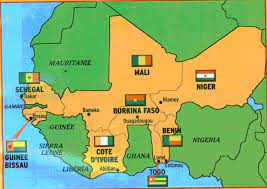APA – Dakar (Senegal) – According to the governor of the Central Bank of West African States (BCEAO), the resilience of activity in all economic activities of the Francophone monetary zone points to robust growth of 6.3 percent in 2023, after 5.9 percent last year.
By Abdourahmane Diallo
After a difficult year internationally in 2022, growth is picking up in the countries of the West African Economic and Monetary Union (UEMOA).
According to BCEAO governor, Jean-Claude Kassi Brou, economic activity in the zone grew by 5.4 percent in the first quarter of 2023.
Speaking on Wednesday at the second ordinary meeting of the BCEAO’s Monetary Policy Committee, Brou announced that “the resilience of activity in all sectors points to robust growth in 2023, projected at 6.3 percent after 5.9 percent in 2022.”
He went on to say that the latest forecasts from the International Monetary Fund predict a global growth of 2.8 percent, against the backdrop of falling inflation.
In the UEMOA zone, Governor Brou said inflation had continued to fall, thanks to higher cereal production and lower prices for imported energy products.
Inflation stood at 5.8 percent in the first three months of 2023, down from 7.8 percent in the previous quarter.
Brou pointed out that this trend was driven by government measures to combat the high cost of living and the central bank’s efforts to boost aggregate demand, which reduced the latter to 4.4 percent.
In April 2023, the increase in consumer prices was also 4.6 percent in the external accounts of the states of the zone, the governor revealed.
“The measures taken by the Central Bank have made it possible to contain the pressures observed in 2022 and at the beginning of 2023. The level of our reserves in April and May 2023 remains sufficient to cover our imports of goods and services in the coming periods. The increase in exports, the mobilisation of external resources by governments and the measures taken by the Central Bank to improve the profile and repatriation of export earnings should consolidate this trend,” he said.
He also pointed out that credit granted by the banking system to finance the economy remained buoyant. At the end of March 2023, they had risen by 16.6 percent year-on-year, after 14.4 percent in the previous quarter.
On the basis of these results, the monetary institution decided to leave the main interest rate at which it lends to banks unchanged at 3.00 percent and the interest rate on the marginal lending window unchanged at 5.00 percent.
These levels will apply from 16 March 2023.
“In the coming months, the Monetary Policy Committee will analyse inflation trends and the financing conditions of the economies and, if necessary, take appropriate measures to ensure monetary stability in the zone,” Brou said.
ARD/ac/lb/as/APA


